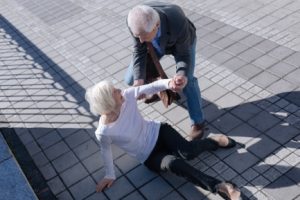Symptoms of dizziness are the number 3 reason individuals over the age of 65 seek medical attention. It becomes the number 1 reason for seeking care in individuals over the age of 70. Medical or surgical management is often not indicated or helpful, but many of these individuals do benefit from vestibular rehabilitation techniques. In addition, 50% of the individuals over the age of 65 with dizziness will develop a particular form of vertigo that can be alleviated with one simple therapy treatment. These individuals with vertigo and dysequilibrium represent a large patient population for physical and occupational therapy.
This course will focus on the assessment and treatment of patients with vertigo and disequilibrium from vestibular causes. Specific emphasis will be placed on the assessment and treatment of unilateral and bilateral vestibular hypofunction, benign paroxysmal positioning vertigo, central vestibular disorders, and multisensory dizziness. This information is applicable to a large patient population including geriatric patients as well as individuals with CNS lesions such as multiple sclerosis, CVA, and head injury.
Richard Clendaniel, PT, PhD, FAPTA is an assistant professor in the Department of Orthopedic Surgery, Doctor of Physical Therapy Division, and in the Department of Head & Neck Surgery and Communication Sciences at the Duke University School of Medicine. He received his MS in Physical Therapy and Ph.D. in Behavioral Neuroscience from the University of Alabama at Birmingham and completed a post-doctoral fellowship in neuro-otology with Susan Herdman, PhD, PT. He previously served as director of the Vestibular Rehabilitation program at Johns Hopkins University School of Medicine, Department of Otolaryngology - Head and Neck Surgery. He is on the medical advisory board for the Vestibular Disorders Association (VEDA) and on the board of directors for the American Balance Society. Dr. Clendaniel maintains an active practice treating patients with vestibular disorders and dizziness. His research is in the assessment of the vestibular system and the plasticity of the vestibular system following injury.
Financial Disclosure: Richard Clendaniel receives an honorarium from Education Resources, Inc. and royalties as a book editor for V̲e̲s̲t̲i̲b̲u̲l̲a̲r̲ ̲R̲e̲h̲a̲b̲i̲l̲i̲t̲a̲t̲i̲o̲n̲, 4th edition, Herdman & Clendaniel.
Non-Financial Disclosure: Richard Clendaniel has no relevant non-financial relationships to disclose.
Excellent speaker! Bright, approachable and with a sense of humor. Dr. Clendaniel presented difficult material and made it understandable. -Debra Weiner, PT
Richards clinical expertise is undeniable. He really came to life through his actual, clinic examples both verbally and via video. He skillfully, clearly and concisely presented often complex and usually confusing information. -Kathrine W. Parker, PT Richard is a credit to the profession; he is knowledgeable, well spoken, and an extremely pleasant presenter. The content of the material covered was detailed and well organized. -Fran Kramer, PT Dr. Clendaniels knowledge and great teaching skills showed in this very comprehensive seminar. -Mary Capuccini, OT
VENUE ADDRESS
Emory Decatur Hospital
2701 North Decatur Road
Decatur, GA 30033
Directions
SUGGESTED ACCOMMODATION
Courtyard - Atlanta Decatur Downtown Emory
130 Clairmont Avenue
Decatur, GA 30030
Directions
VENUE LOCATION MAP
Click image to access Google Maps.
This course meets the criteria for 13.5 contact hours (1.35 CEUs)
The DC, DE, GA, MI, PA, and VA Boards of Physical Therapy accept other Boards approvals
Approved provider by the NY State Board of Physical Therapy for 16.2 hours
Approved provider of continuing education by the American Occupational Therapy Association #3043, for 13.5 contact hours - Intermediate Level Occupational therapy Process: assessment, intervention. The assignment of AOTA CEU's does not imply endorsement of specific course content, products or clinical procedures by AOTA.
NBCOT professional development provider - 13.5 PDU's


